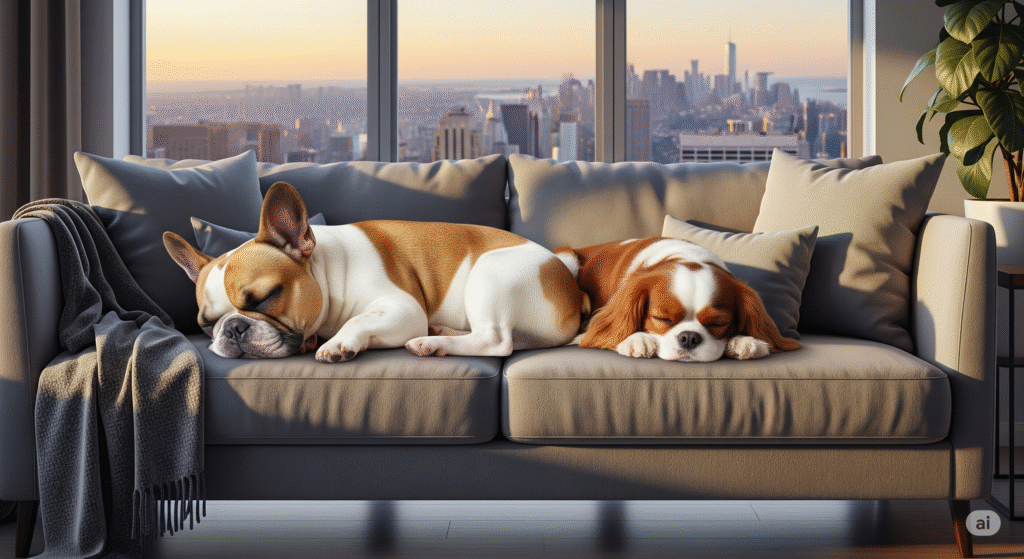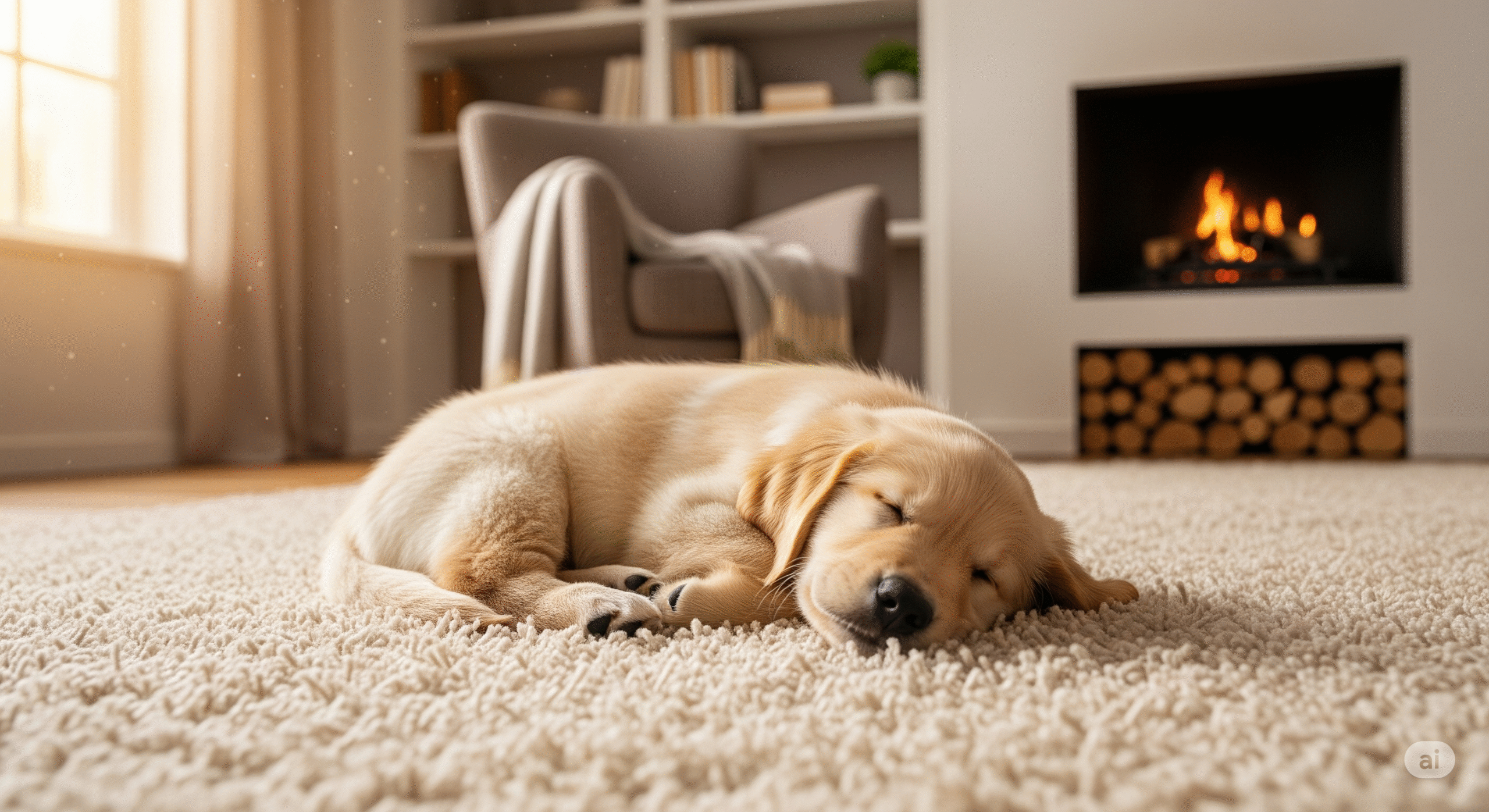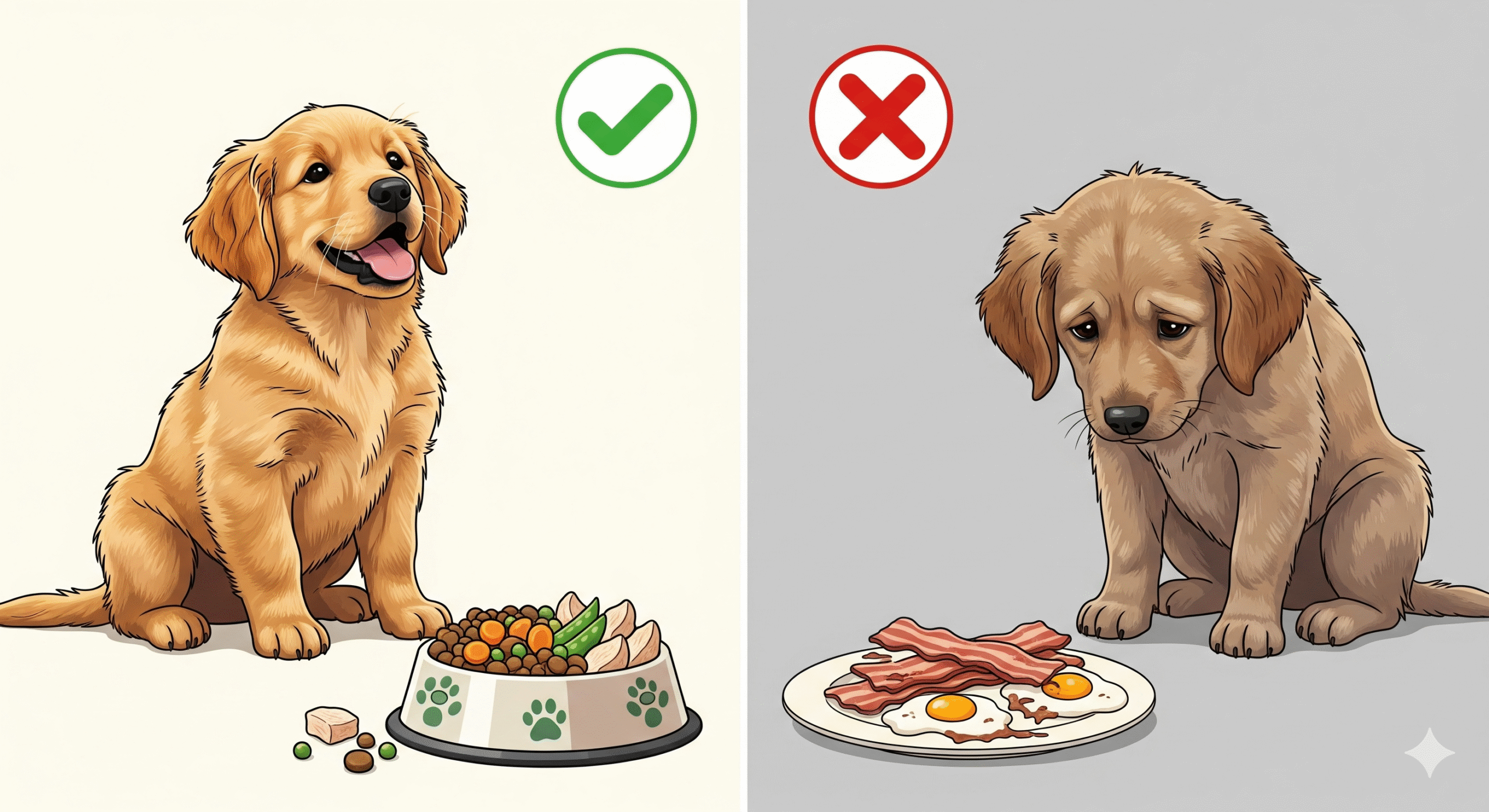Living in an apartment doesn’t mean you can’t enjoy the companionship of a dog. However, choosing the right breed is the difference between harmonious cohabitation and a stressful mismatch. The best apartment puppies are more than just small; they have calm temperaments, lower energy levels, and are adaptable to life without a backyard.
This comprehensive guide will help you find your perfect furry roommate by covering:
✔ Key traits of an ideal apartment dog (it’s not just size!)
✔ Detailed profiles of the top 10 low-energy breeds
✔ Essential tips for raising a puppy in a small space
✔ Breeds to avoid (no matter how cute they are!)
Let’s find a pup that will love your apartment as much as you do!
What Makes a Dog a Great Apartment Pet? 🧐
While size is a factor, temperament and energy level are far more important. A large, low-energy dog can be a better fit than a small, high-energy terrier. Here’s what to look for:
Key Traits of Apartment-Friendly Dogs
- Low to Moderate Energy: Breeds that are content with a few short walks and indoor play are ideal. They won’t develop destructive behaviors out of boredom.
- Quiet Demeanor: While all dogs bark, breeds less prone to frequent or loud barking will keep peace with your neighbors. This is non-negotiable for apartment living.
- Adaptability: The best apartment dogs are flexible and can thrive in a changing environment without getting stressed.
- Smaller Size: This is practical for navigating small spaces, fitting on elevators, and complying with potential weight restrictions in your lease.
Breed Isn’t Everything: Individual Personality Matters
Remember, a breed guide is a starting point. Always meet the puppy or adult dog before committing. A rescue dog’s personality is often already evident, which can be a major advantage.
Top 10 Best Low-Energy Apartment Puppies 🥇
Here are our top picks for breeds that tend to excel in apartment settings.
1. Cavalier King Charles Spaniel 👑
- Temperament: Affectionate, gentle, and extremely adaptable. They are true companion dogs who live to love their people.
- Energy Level: Low. Happy with a daily walk and then cuddling on the couch for hours.
- Why They’re Great for Apartments: Their quiet nature and small size (13-18 lbs) make them perfect. They get along with everyone and are less prone to nuisance barking.
- Considerations: They can be prone to separation anxiety if left alone for too long.
2. French Bulldog 🐸
- Temperament: Playful, alert, and incredibly charming. They have big personalities packed into a small, sturdy body.
- Energy Level: Low to Moderate. They have bursts of playful energy but are champion nappers.
- Why They’re Great for Apartments: They are quiet, requiring minimal exercise, and are very people-oriented. Their short coat is also low-shedding.
- Considerations: Their brachycephalic (flat-faced) nature means they are sensitive to heat and can snore loudly.
3. Greyhound 🐇
- Temperament: Surprisingly calm, gentle, and quiet. They are the ultimate couch potatoes.
- Energy Level: Very Low indoors. They are sprinters, not endurance athletes, and require a few short walks and a chance to run in a secure area once a day.
- Why They’re Great for Apartments: Known as “45-mph couch potatoes,” they are perfectly content sleeping 18 hours a day. They are among the quietest of all dog breeds.
- Considerations: Their large size (60-70 lbs) might be an issue in buildings with strict weight limits. They also have a strong prey drive.
4. Basset Hound 🐶
- Temperament: Easygoing, friendly, and a little bit stubborn. They are mellow and devoted family members.
- Energy Level: Low. They enjoy leisurely sniff-filled walks but are otherwise content to lounge.
- Why They’re Great for Apartments: Their idea of a perfect day involves a lot of napping. They are not known for being hyper or destructive.
- Considerations: They can be vocal (a loud, baying bark) and are famous for their stubborn streak during training. They also drool.
5. Shih Tzu 🦁
- Temperament: Outgoing, alert, and loving. They are true lap dogs bred for companionship.
- Energy Level: Low. Their exercise needs are easily met with indoor play and short walks.
- Why They’re Great for Apartments: They are small, adaptable, and tend to form strong bonds with their owners, making them great for smaller spaces.
- Considerations: Their long, luxurious coat requires daily brushing to prevent mats. They can be difficult to housebreak.
6. English Bulldog 💪
- Temperament: Calm, courageous, and friendly. They have a dignified but sweet nature.
- Energy Level: Very Low. A short walk around the block is enough to tire them out.
- Why They’re Great for Apartments: They are one of the laziest breeds and are perfectly suited to apartment life. They are not big barkers.
- Considerations: They have significant health problems related to their flat faces and body structure. They snore, drool, and are sensitive to heat.
7. Pug 😊
- Temperament: Charming, mischievous, and loving. They are clowns who thrive on human interaction.
- Energy Level: Low to Moderate. They enjoy playtime but are equally happy napping.
- Why They’re Great for Apartments: Their small size and moderate exercise needs are a perfect fit. They are social butterflies who get along with everyone.
- Considerations: Like other flat-faced breeds, they are prone to breathing issues and cannot handle heat or strenuous exercise.
8. Boston Terrier 🎓
- Temperament: Friendly, bright, and amusing. They are well-mannered and eager to please.
- Energy Level: Moderate. They enjoy play sessions and walks but know how to settle down.
- Why They’re Great for Apartments: Their “American Gentleman” persona means they are typically quiet and polite. They are a very clean breed with a short, easy-care coat.
- Considerations: They can be prone to snorting and snoring due to their short muzzle.
Essential Tips for Raising a Puppy in an Apartment 🏡
Choosing the right breed is only half the battle. Success depends on your approach.
1. Master Potty Training Fast 🚽
- Consistency is key. Take your puppy out first thing in the morning, after every meal, after naps, and before bed.
- Use a designated potty spot close to your building to make trips quick and efficient.
- Always go with them to reward them immediately for going in the right place.
2. Manage Barking and Noise 🤫
- Never reward barking for attention. Turn your back and ignore them until they are quiet.
- Provide plenty of mental stimulation (puzzle toys, training) to prevent boredom barking.
- Use white noise or a TV to mask triggering sounds from the hallway or neighbors.
3. Create an Exercise Routine Without a Yard 🚶♂️
- Short, frequent walks are better than one long, exhausting one.
- Find a nearby green space for leash-running and play.
- Indoor play like fetch in a hallway or tug-of-war can burn energy on rainy days.
4. Be a Considerate Neighbor 👋
- Introduce your puppy to neighbors in the elevator or lobby to create positive associations.
- Wipe paws in the lobby to keep common areas clean.
- Use rugs to dampen the sound of pitter-pattering paws for downstairs neighbors.
Breeds to Think Twice About for Apartment Living ⚠️
Some breeds, regardless of size, are a challenging fit for apartments due to their high energy or vocal nature:
- Herding Breeds: Border Collies, Australian Shepherds, Cattle Dogs. They need a job and immense physical/mental stimulation.
- High-Energy Sporting Breeds: Labrador Retrievers, Vizslas, Weimaraners. They are prone to destructive behavior without enough exercise.
- Vocal Breeds: Beagles, Siberian Huskies, Miniature Schnauzers. Their barking, howling, or baying can quickly lead to neighbor complaints.
Final Thoughts: Your Perfect Apartment Companion Awaits! ✨
Finding the best apartment puppy is about matching a breed’s innate characteristics with your lifestyle. By prioritizing a low-energy, calm, and quiet companion, you are setting yourself up for a joyful and peaceful life together in your home.
Ready to find your perfect low-energy match? 🐕💤

Labs are known for their intelligent, outgoing, and gentle nature, making them excellent family dogs. However, their high energy levels and strength require an owner committed to consistent training and plenty of daily exercise.
If you’ve decided that a Lab is the perfect fit for your family, your next step is to prepare for their arrival. For a deep dive into everything you need to know about raising a happy and healthy Lab, from the first day to the first year, continue your research with our detailed Labrador Retriever Puppy Care Guide.
Labrador Retriever Puppy Care Guide





